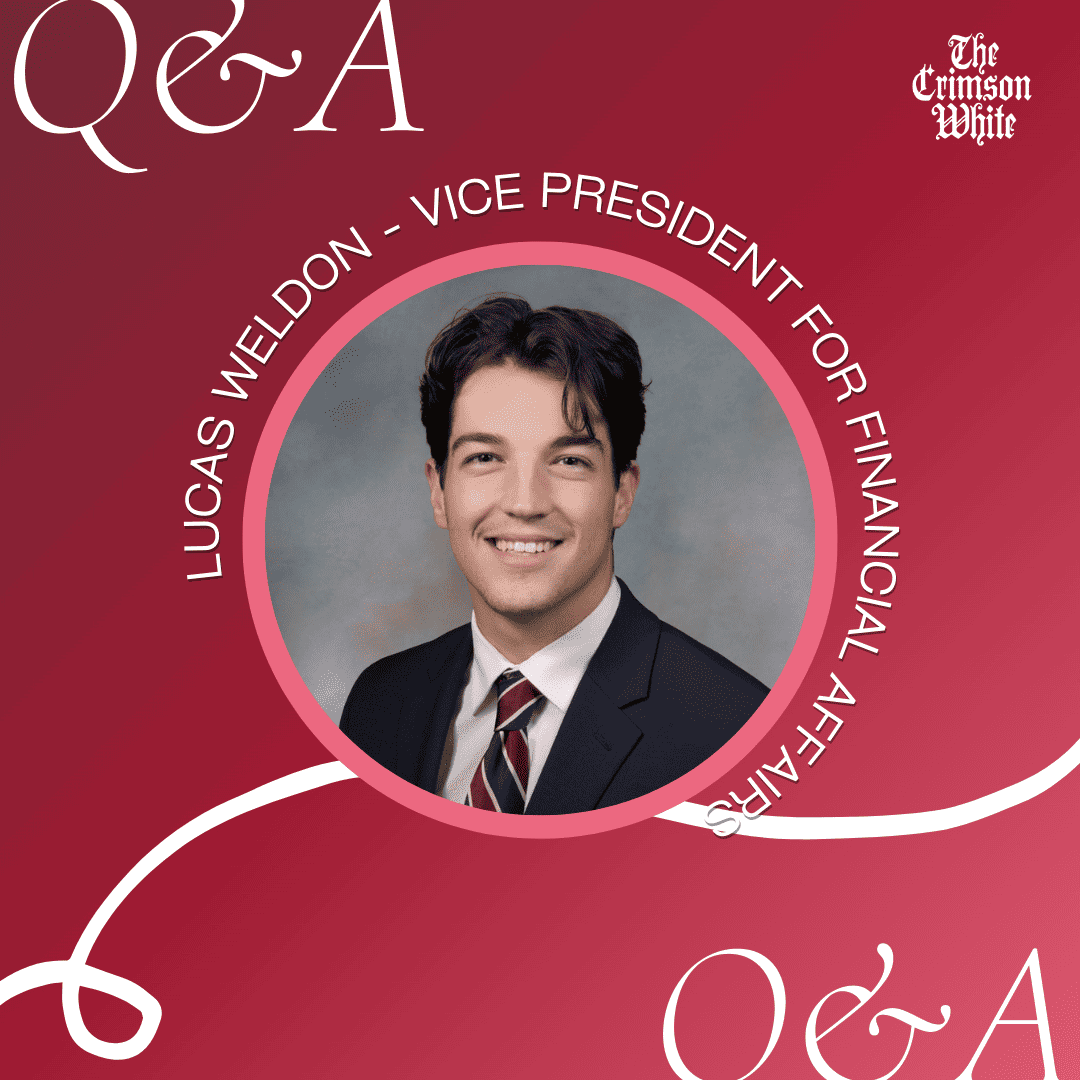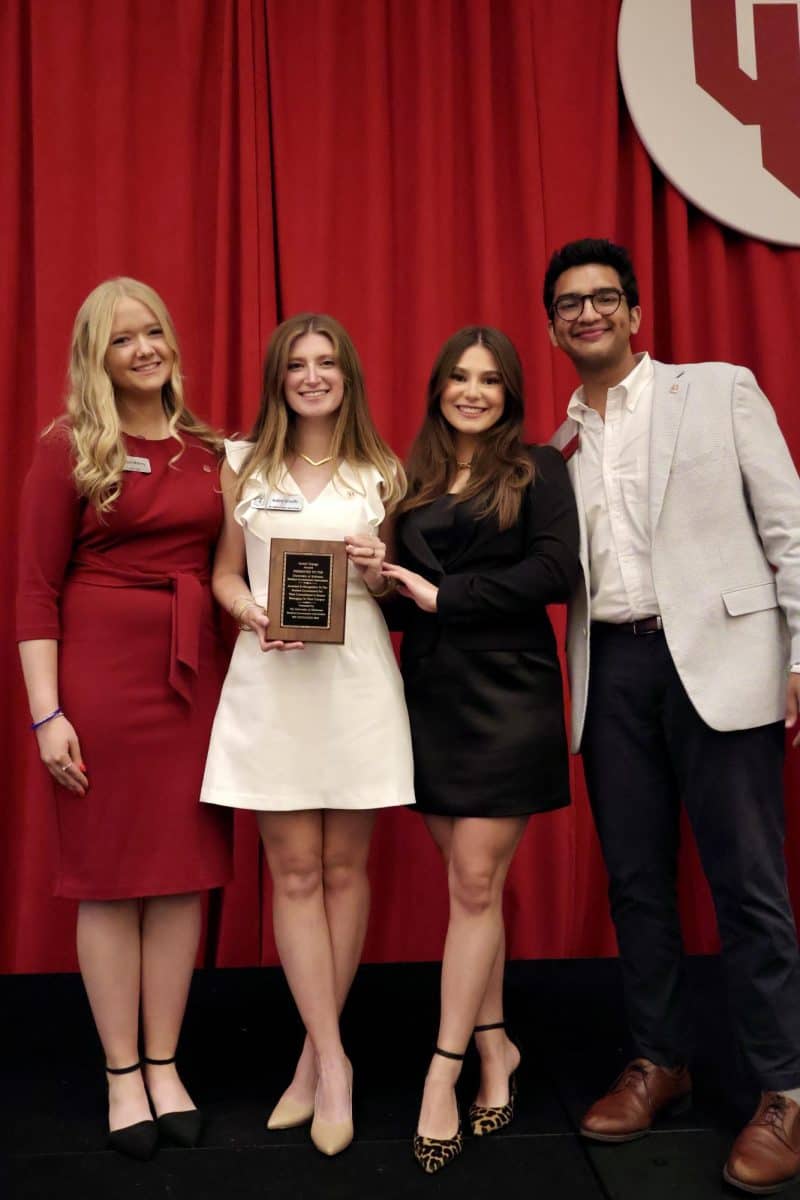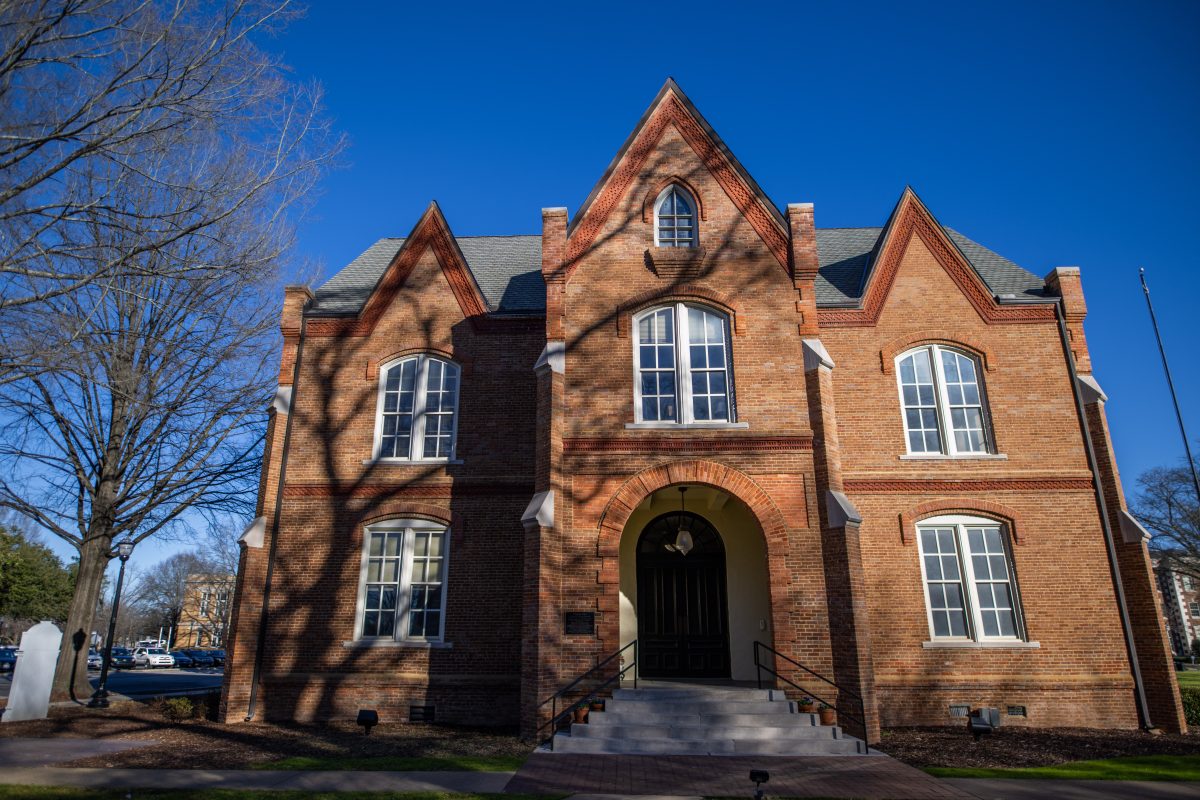Lucas Weldon is a junior majoring in finance and cybersecurity and the director of engagement for Vice President for Financial Affairs Eric Doh.
Q: What made you want to run for VP of Financial Affairs?
“My tenure in SGA started off when I was a freshman. I applied for First Year Council. Unfortunately, I didn’t get accepted. From there, I moved on to the SGA Health and Wellness Committee as a freshman, and after my experience with that, I decided to run for senator of the Culverhouse College of Business. It was during sophomore year when I started on the Financial Affairs Committee, and that’s what really sparked my interest in financial affairs. From there, I moved on to work with Eric Doh as his director of engagement on the financial affairs cabinet. So I’ve really had a lot of experience in financial affairs throughout my time in SGA, and that’s what inspired me. I have a lot of experience doing it, so I know what it takes to continue to move on with the position.”
Q: Do you have specific plans for improving the Financial Affairs Committee funding process?
“So for FAC funding, really, our goal is to make it more well known. If organizations registered through mySource don’t know it exists, then we’re not getting the amount of applications that we want to see each period for funding. That’s one thing that I bring back from my Senate experience too: I’ve actually sat on the FAC board already. I’ve already done those allocations, so I already know what the process looks like. So we want to expand awareness of it first, and then from there, we want to make the process more transparent. We want people to easily be able to go on to the SGA website and say this is what happened in the meeting, this was the funding allocation, and this is why the decisions were made. So I think once we make it more aware and then transparent, we’re going to set up organizations in the best position they can be so that when the next cycle comes around and they apply, they know exactly how to do it, so they can receive the most money possible that you allocate to them.”
Q: What is the biggest problem you see on campus?
“I think it picks up right there with FAC funding, honestly. Not so much the actual concept of FAC funding — I think that’s one of the best things SGA does — but making sure that our organizations are aware, especially the smaller organizations that might not have the member pool to pull funds from to have their own financial background. Those are the ones that need it the most, and usually because they’re so new, they’re not as aware. So I think as long as we can continue to spread more awareness as organizations and really just make it more transparent so they know exactly what they need to do to get the money they need to succeed, we’re going to cultivate better clubs, better experiences, for the entire student body.”
Q: What are your thoughts on your election being uncontested?
“It is one of my goals to get more people plugged into SGA. We bring in a large, diverse group of people within the organization. It’s one of the biggest ones on campus, and there’s really many avenues. I didn’t take what I would consider a more traditional route in FYC; you know, I started [with] the Health and Wellness Committee. So there’s smaller groups to get people more plugged in. And then from there, I think, as those groups continue to expand, we’re going to see more people getting involved, and we’re going to start to cultivate these larger candidate pools. I hope that through my time, you know, I can encourage people and people can say, ‘Oh, financial affairs is something I’m now interested in.’ And hopefully next year more people will want to be involved, even if it’s not maybe for the VP role. Maybe it’s for sitting on the cabinet, and then from there, they can transition to a VP role if they choose.”
Q: How do you plan on increasing SGA transparency?
“So within the realm of financial affairs, right, I think it does go back to the Financial Affairs Committee’s allocations. I want to make sure that organizations are aware of how we’re allocating the money to just be as transparent as possible, because not only does that help us because we don’t have to answer any questions on the back end, it helps them because they can see what’s going on so they know exactly the proper steps that need to be taken to ensure it. So what I want to do once I’m in office and just hit the ground running is make our own separate webpage for FAC funding, to make it very visually pleasing, very palpable information, not … overwhelming, so groups can look at it for one or two minutes, and they can know exactly what happened the last meeting, where the money went, and who it went to.”
Q: What is one last thing you want voters to know about you?
“I just want them to know that I’m a fellow student like them on this campus. I’m running to be the next vice president of financial affairs. But one of my biggest things that I don’t think I really got to cover a lot in this interview is that financial literacy is a big part of what I’m running on. I’m from Alabama. It’s one of the poorest states in the entire country. I want to be able to give students the opportunity to learn different avenues about financial awareness that maybe they wouldn’t traditionally get in their college experience. So we’re going to be doing speaker series for literacy, such as your debt, your credit, mortgage, investments. So not only is it that, it’s just the position. I actually want the student body to be more educated on the roles of finances in their life because it does extend just beyond what SGA does with finances. I’m running on Feb. 27 from 7 a.m. to 7 p.m., and they can vote on myBama.”







